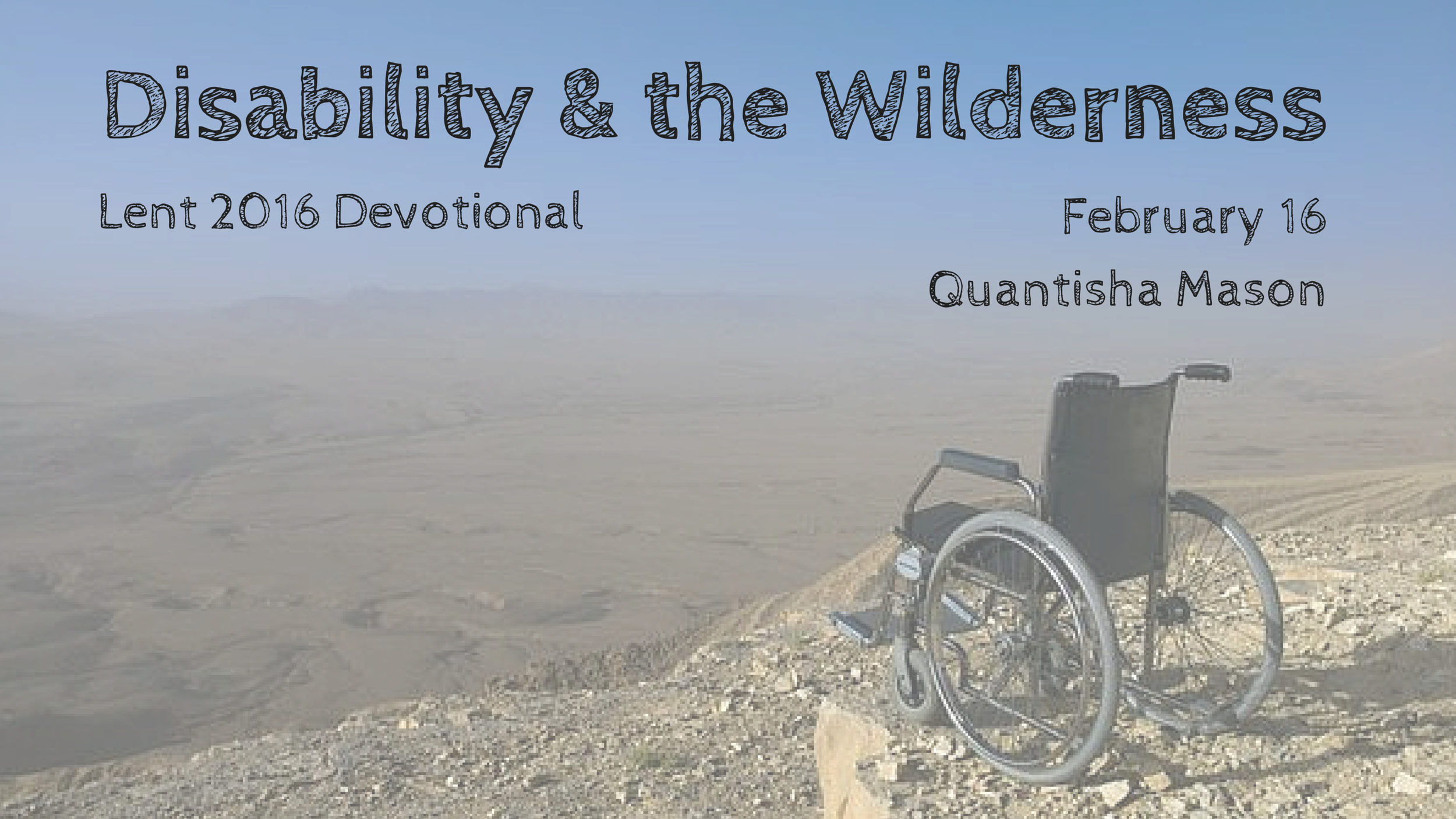(In)Visibility of (Dis)Ability
02-16-2016
By Student Quantisha Mason
For our 2016 Lenten devotional series, we are publishing a series of reflections on faith and (dis)ability. Student Quantisha Mason shares her experience and reflections for the first week of Lent.
I have a not-so-secret secret that I think I should let people know about. God graced me with being different; I live with neurological disorders, which have left me with an invisible stigma. My disorders are as follows:
Dyslexia, which is a formal learning disability in the area of spelling, writing, reading and math. It also effects areas of speech.
ADHD (Attention Deficit Hyperactivity Disorder)
These disorders are pervasive; they love to take over my mind body and soul. I look “normal” but I know I am far from it. There are moments in my life when I can’t relate or I can’t do things that are asked of me because I am focused on trying to manage my disorders. My disorders are living things which I relate to the unclean spirits Jesus spends a lot of time casting out. That is not to say I want to have my demons cast out. Frankly I have grown to love them. I have them for a reason and I am a better person because of it.
I want you all to understand where I am at with my disorders. Anxiety, for me, is like a really heavy blanket that is wrapped why to tight. ADHD is like a shirt I can’t take off that cycles between being tight and loose. Dyslexia, at times, is like really dark tinted glasses worn at night so you can’t read anything.
There will be moments when it’s as if I don’t have this disorder, and then are others when they are all that matter. There are days when I truly believe that my anxiety and ADHD are best friends and that one feeds off the other. Days like that are emotionally exhaustive, which plays into a cycle that could last days or weeks. Dyslexia, on that other hand, is pretty much my favorite of the disorders, if I had to choose. It has caused more pain than good, so I had to learn to love it all the more. I have been bullied and made fun of because of my reading and writing, which feeds into my anxiety surrounding school settings. I can’t count the number of times people told me “just calm down,” “It can’t be that bad, its nothing to worry about,” “you need to learn how to control yourself,” or—my favorite—“What, you can’t read?” It’s easy for people to say but they will never understand the kind of super power it takes to make it through class or life.
Why is this important? God’s radical welcome would tell us that I should not have had to gone through all of the pain and suffering but I did. That is because we, that is the collective we, still push those who are different away. We think that if a person is not “normal” then there must be something that we, being those classified as normal, can catch from them or that they require more help than others. When it comes to people like myself with borderline invisible disorders, we don’t receive the same level of empathy. Our issues are dismissed in favor of conformity.
God, Our Creator, help us to understand that we are made in your image, and that image is expansive.
Help us to realize that neurological disorders are just different ways to view your creation.
We give thanks for our understanding of how to better treat people living with these conditions
And we give you thanks for loving us any which way we come.
In All these we prayer in Jesus’ Name
Amen.
Quantisha Mason is a second-year MDiv student and Fellow at the Center for Faith and Service. She is unapologetically queer and committed to being an agent of social change in the world.




